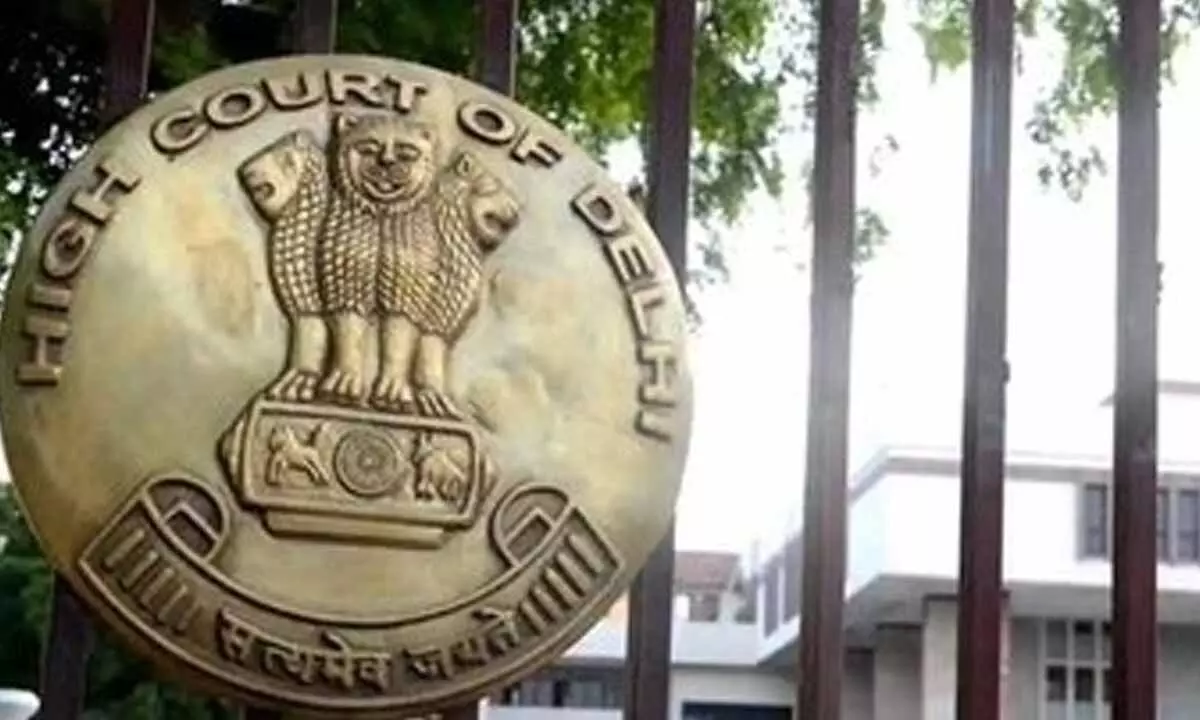Live
- All you need to know about PAN 2.0
- Akasa Air redefines travel experience with industry-first offerings
- MP: Residents stage protests against liquor shop in Indore
- Telugu Actor Shri Tej Booked for Alleged Cheating and False Promise of Marriage in Live-in Relationship
- Toyota Kirloskar Motor Celebrates 1 Lakh Urban Cruiser Hyryder on Indian Road
- MLS: New York City FC part ways with head coach Nick Cushing
- Delhi CM says Centre cutting AAP voters’ names from rolls, BJP hits back
- Hyderabad Metro Rail Phase-II Works to Begin in Old City in January 2025
- Odisha: 668 persons killed in human-elephant conflicts in last three years
- DEFENDER JOURNEYS: TO EMBARK ON ITS THIRD EDITION FROM NOVEMBER 2024
Just In
'If eateries are worried about staff, raise salaries', Delhi High Court on service charge plea


Delhi High Court
The Delhi High Court on Tuesday observed that restaurants should raise the salaries of the employees if they were concerned about their staff.
New Delhi: The Delhi High Court on Tuesday observed that restaurants should raise the salaries of the employees if they were concerned about their staff.
The court said this while dealing with the Central Consumer Protection Authority (CCPA)'s plea in relation to the service charge issue of eateries.
The division bench headed by Chief Justice Satish Chander Sharma was hearing the appeal of the Central Consumer Protection Authority (CCPA) challenging the July 20 stay order on its new guidelines restraining restaurants from adding a service charge by default to food bills.
The bench also comprising Justice Subramonium Prasad, also asked whether consumers be forced to pay a service charge.
The common man can feel the service charge as imposed by the government is like a tax, the bench remarked.
The matter will be further heard on August 18.
The stay of the fresh guidelines of the country's consumer watchdog on July 20 was following the challenging plea of the National Restaurant Association of India (NRAI).
In the last hearing, Justice Yashwant Varma remarked: "Don't pay. Don't enter the restaurant. It's a matter of choice."
Granting the stay, the court has also directed that the information regarding the levy of Service Charge should be displayed on menu cards and also otherwise displayed so that customers are aware of this charge.
Importantly, the court also clarified that the Service Charge cannot be levied on any takeaway orders. NRAI is very relieved with the passing of this order because it otherwise had a direct adverse impact on the human capital employed in the trade.
In its response to the verdict, the NRAI said it has always been steadfast in its assertion that there is nothing illegal in levying of Service Charge and it is a very transparent system.
"The levying of service charge is a matter of contract and decision of the management. The levying of service charge is displayed at various places in the restaurant. The same is also displayed on the menu cards of the restaurants. Once the customer places the order after being made aware of the terms and conditions there comes into existence a binding contract. No authority can interfere with the binding nature of a valid contract until and unless it is shown and proved to be unconscionable or is an unfair trade practice," it stated.
The Central Consumer Protection Authority (CCPA), which comes under the Ministry of Consumer Affairs, has issued guidelines for preventing unfair trade practices and violation of consumer rights with regard to the hotels and restaurants levying service charge, stating that the consumer may lodge a complaint with the National Consumer Helpline (NCH) against such practice.
The CCPA said that the consumer may make a request to the concerned hotel or restaurant to remove service charge from the bill amount. The consumer may also file a complaint against unfair trade practices with the Consumer Commission.
As per the appeal of the consumer watchdog, "The Guidelines have been issued for safeguarding the rights and interests of consumers and to protect the consumers from unfair trade practices and violation of consumer rights due to mandatory collection of service charge and adding such charge automatically or by default in the food bill without allowing consumers the choice or discretion to decide whether they want to pay such charge or not."

© 2024 Hyderabad Media House Limited/The Hans India. All rights reserved. Powered by hocalwire.com






